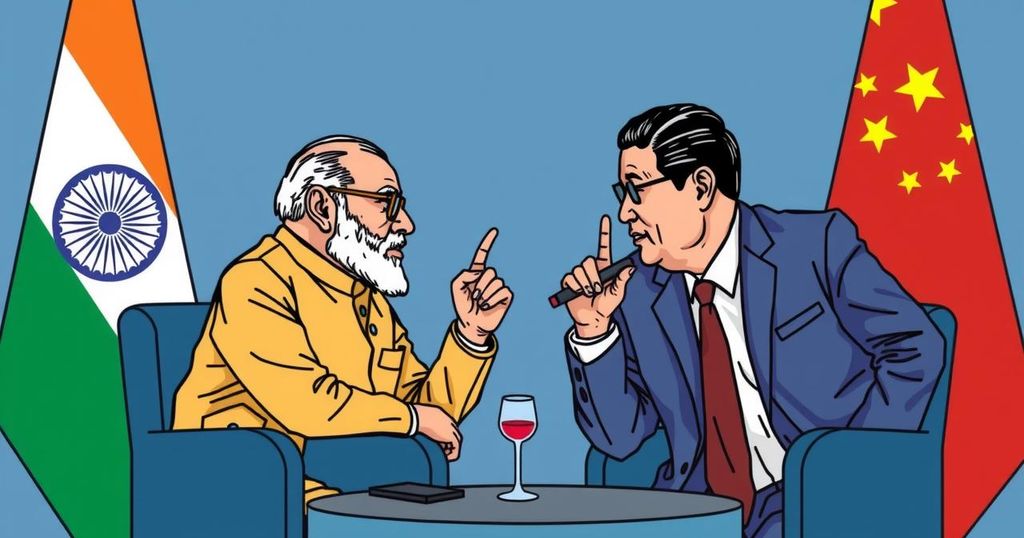Global news
ASIA, BILATERAL TALKS, BRAZIL, CHINA, COM, CPC, CPC POLITBURO, DEMCHOK, DEPSANG, DIPLOMACY, GEOPOLITICS, INDIA, INTERNATIONAL RELATIONS, JAISHANKAR, LADAKH, MEXICO, NDTV, NDTV. COM, NORTH AMERICA, RIO, S JAISHANKAR, SOUTH AMERICA, STRATEGIC PARTNERSHIP, WANG, WANG YI
Leila Ramsay
0 Comments
India and China Review Troop Disengagement During G20 Summit Meeting
Indian External Affairs Minister S. Jaishankar and Chinese Foreign Minister Wang Yi evaluated the disengagement of troops in eastern Ladakh during their meeting at the G20 Summit. This marked their first high-level interaction since the completion of the disengagement process. They also discussed future steps to advance bilateral relations and the global situation, reflecting a commitment to diplomacy and stability following recent tensions.
During a meeting on the sidelines of the G20 summit, Indian External Affairs Minister S. Jaishankar and his Chinese counterpart Wang Yi reviewed the recent disengagement of troops in the Demchok and Depsang regions of eastern Ladakh. This marked the first significant dialogue since the conclusion of the disengagement process along the Line of Actual Control (LAC) between the two nations. Following their discussions, Minister Jaishankar articulated that both sides deliberated on the subsequent steps to enhance bilateral relations. “We noted the progress in the recent disengagement in the India-China border areas. And exchanged views on the next steps in our bilateral ties. Also discussed the global situation,” he remarked after his talks with Mr. Wang. The meeting took place in Brazil, where the G20 Summit was hosted on Monday and Tuesday. Additionally, it was noted that Indian and Chinese military forces had resumed patrolling in the disengaged areas after a hiatus of nearly four-and-a-half years, following a prior agreement to settle the ongoing border dispute.
The relationship between India and China has been historically complex, characterized by territorial disputes along the Line of Actual Control (LAC). Recent hostilities led to heightened tensions and military standoffs, particularly in the Ladakh region. The disengagement process in areas like Demchok and Depsang is a pivotal measure aimed at de-escalating these tensions and fostering dialogue. The G20 Summit provided a fitting backdrop for high-level engagement between the two nations, as both are key players in global geopolitics and economics. Resolving border issues is essential not only for regional stability but also for improving bilateral trade and cooperation.
In conclusion, the discussions between Minister Jaishankar and Foreign Minister Wang Yi signify a positive development in India-China relations, highlighting mutual recognition of the importance of dialogue and progress. The successful disengagement of troops in contentious areas suggests potential for further cooperation and stability. The return to patrolling indicates a move towards normalized operations in the border regions, reflecting an ongoing commitment to resolving differences through diplomatic channels. The outcome of such engagements will be critical in shaping the future of India-China bilateral ties.
Original Source: www.ndtv.com




Post Comment